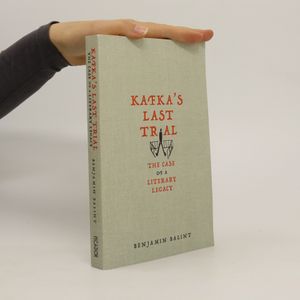En savoir plus sur le livre
When Franz Kafka died in 1924, his friend Max Brod defied Kafka's last wish to burn his manuscripts, dedicating his life to establishing Kafka as a key figure of the twentieth century. By preserving Kafka's work, Brod not only saved it from destruction but also from obscurity, leading to an international legal battle over Kafka's legacy. The conflict arose between Germany, where Kafka's sister died in the Holocaust, and Israel. This account provides a biographical portrait of Kafka and Brod, along with the Prague Circle of writers and intellectuals. It details the controversial Israeli court trial that decided the fate of the manuscripts Brod smuggled to Palestine in 1939, capturing the legal, ethical, and political dilemmas involved. The narrative unfolds against the backdrop of a harrowing escape from Nazi forces as Europe closed its gates, intertwined with a love story among exiles in Tel Aviv. The trial reflects the national obsessions of two countries grappling with their traumatic pasts, ultimately raising profound questions about the ownership of literary legacies—whether they belong to the nation of one's birth or to one’s cultural and religious identity.
Achat du livre
Kafka's Last Trial : The Case of a Literary Legacy, Benjamin Balint
- Langue
- Année de publication
- 2018
- product-detail.submit-box.info.binding
- (souple)
Modes de paiement
Il manque plus que ton avis ici.


